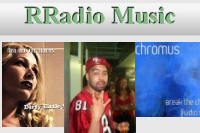![]()
|
Quality of Commercials Needs to be Addressed Being lucky, I was a broadcaster for nearly three decades. I got to participate in fun times that were rarely considered work. We were paid to have fun, to create "different," to act as community guardians and report what authorities wished to remain hidden. There's a lot of responsibility within those words, so cast aside the fun part, along with that mention of community guardians and authorities; they are not as big a priority today, anyway. That part about "create different," - and we're talking broadcast or online - radio just isn't doing much of it these days.
Powerful copy? How much do you hear today? Ad concepts that "wow" you. Is there anything on your station web site or coming out of your audience's speakers that is so defined? We hear ROI spoken of, plenty. However, within radio it doesn't carry the same meaning as digitally savvy advertisers give it. When Audio Graphics was a producer of radio and television commercials (1991-2001) my Golden Rule was to make the next commercial different from the one just completed. (Spec, here.) Quality was inherent with each spot; that's my way of saying don't quit until it "wows" the client. The wow factor is a lost concept in a world where broadcast radio is run on shoestring budgets, and pureplay stations, for the most part, are run by a person who is more interested in delivering their perfect blend of music or talk. How commercials are made hasn't changed in over fifty years, and that needs to change. More time for creative, to develop the concept. Scripts need rewrites to lose the "conveniently located at," "You hear right," and oh so many more trite lines that add nothing. Then, there is a need for more production time, to finesse the sound and/or appearance. Throw in better accountability methods and you have all that's required, if radio wants to stay in the advertising race. What must be sought by the industry is "Advertising without Compromising User Experience." Those are Google's words, which are accompanied by a salient point: "...this lesson generically highlights concepts that are similar across advertising networks." This is radio's competition, not other stations'. While we read about the online audio ad sector growing, we also read how this growth is not as fast as that of other digital advertising. We also read about advertising money moving into digital - rephrased, away from radio. A reason is that there's not much "different" being created in audio ads, in their construction, production, scheduling, or accountability. If anyone is waiting for online radio's ship to come in, they'll need to address these for items affecting commercial quality. Online is not about just building an audience. Audiences are easy to buy. Audio commercials now need to make advertiser and audiences respond with "Wow, that was good." Thursday, March 26, 2015  |
 |
 |
 |
comments by Disqus |






